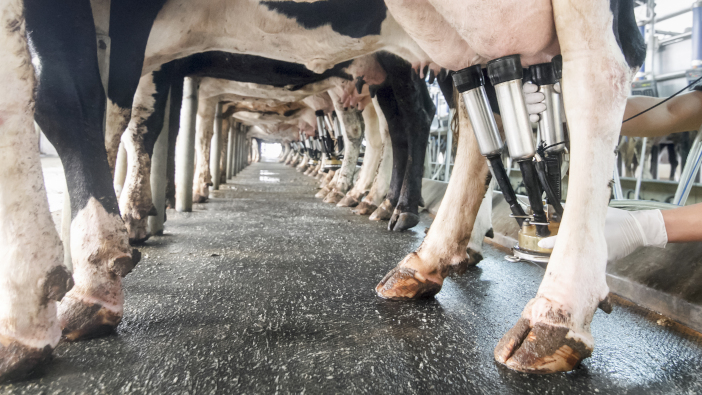The latest advice from the Milking Equipment Association (MEA) is that, in the cleaning and disinfection of milking equipment, chlorine should be avoided or replaced in final rinses – to reduce the risk of chlorate residues in milk products.
Red Tractor standards state that milking equipment should free from chemical residues, which can be accomplished by performing a final rinse of equipment with drinking quality water. Or, the MEA adds, if chemicals are required, chlorine free alternatives such as peracetic acid should be considered.
MEA chair, John Baines, said: “The risk of chlorate residues is highest in heavily processed products, especially in milk powders and infant formulas; the European Food Safety Authority has advised that exposure to chlorates for long periods of time can lead to iodine deficiencies in infants.”
As such, “EU Legislation has set a new maximum residue limit (MRL) for chlorates in milk products, to ensure that levels do not exceed 0.1mg/kg.”
Robotic technology has taken the lead on cleaning without chlorine, using boiling water as an alternative. Acid or alkali can be added to the early stage of the cleaning to prevent fat or mineral deposits, however, high temperatures can disinfect equipment surfaces, so no disinfectant is required.
“Whilst technology has some of the answers, installation, calibration and maintenance of all milking systems should be carried out according to manufacturer’s guidelines, by Milking Systems Technician Accreditation technicians,” Mr Baines concluded.


